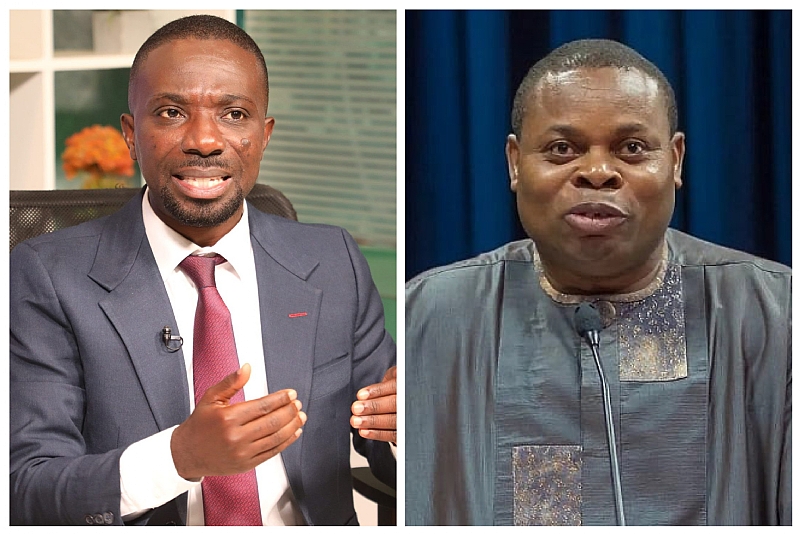The political landscape in Ghana following the 2024 presidential election has been rife with analysis, commentary, and, inevitably, some measure of gloating. Franklin Cudjoe, the Founding President of IMANI Africa, a prominent think tank in Ghana, has been particularly vocal, reigniting his ongoing critique of Vice President Dr. Mahamudu Bawumia’s presidential campaign strategy and its ultimate failure. Cudjoe’s post-election commentary, delivered with characteristic pointedness, highlights the stark contrast between the pre-election predictions of a Bawumia victory by some within the New Patriotic Party (NPP) and the eventual outcome, which saw Bawumia securing a significantly lower percentage of the vote than projected. This public back-and-forth underscores the deep divisions and heightened emotions that often characterize the post-election period.
The crux of Cudjoe’s renewed criticism centers around what he perceives as a flawed and overly optimistic campaign strategy employed by the Bawumia camp. His social media post, referencing the election results, appears to directly address Dennis Miracles Aboagye, the Director of Communications for the NPP’s 2024 Presidential Campaign. Aboagye, prior to the election, had confidently asserted that Bawumia’s campaign was gaining substantial momentum and resonating with the electorate. Cudjoe’s post, highlighting the significant gap between the projected outcome and the actual results, serves as a pointed rebuttal to these pre-election assurances. This public exchange not only exemplifies the often-contentious nature of political discourse but also underscores the importance of accurate and realistic assessments of public sentiment in political campaigning.
The roots of this public disagreement trace back to November 2024, during the heat of the election campaign. Cudjoe had accused the NPP of disseminating what he deemed to be misinformation regarding John Mahama’s purported intentions concerning key social programs like the Free Senior High School (Free SHS) policy and the National Health Insurance Scheme (NHIS). Aboagye responded forcefully, accusing Cudjoe of bias and promoting a pro-Mahama agenda. This initial exchange laid the groundwork for the post-election sparring, highlighting the existing tensions and differing perspectives between Cudjoe and the NPP.
Aboagye’s pre-election defense of Bawumia had been robust, even going so far as to challenge Cudjoe to compare the ‘tapes’ of Mahama and Bawumia, emphasizing Bawumia’s purported integrity, competence, and problem-solving abilities. He further characterized Bawumia as sober, focused, respectful, hardworking, and, crucially, not corrupt. This strong endorsement, juxtaposed with the final election results, forms the basis of Cudjoe’s post-election critique. The discrepancy between Aboagye’s confident predictions and the reality of the election outcome provides fodder for Cudjoe’s argument about the miscalculation of the Bawumia campaign.
Cudjoe’s latest remark, referencing the significant difference between Bawumia’s actual vote share and the ‘big win’ projected by Aboagye, serves as a public affirmation of his earlier criticisms and a pointed commentary on the NPP’s campaign strategy. This exchange highlights the importance of not just crafting a compelling campaign narrative but also grounding that narrative in a realistic assessment of public opinion and electoral dynamics. The failure of the Bawumia campaign, as evidenced by the election results, suggests a disconnect between the campaign’s messaging and the electorate’s priorities.
The public nature of this exchange between Cudjoe and Aboagye offers a glimpse into the often-messy post-election analysis and the recriminations that can follow an unsuccessful campaign. It also underscores the role of independent analysts like Cudjoe in holding political parties accountable for their campaign promises and strategic decisions. Cudjoe’s continued criticism, while potentially interpreted as partisan by some, ultimately serves to contribute to the ongoing public discourse surrounding the election and the factors that contributed to the final outcome. This dialogue, however contentious, is a crucial component of a healthy democracy and contributes to a more thorough understanding of the political landscape and the evolving needs and preferences of the electorate.














